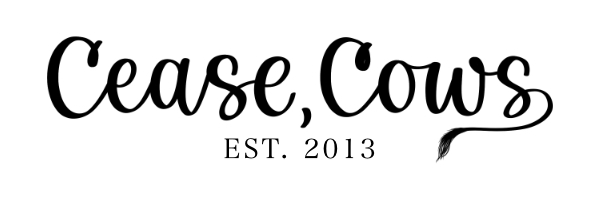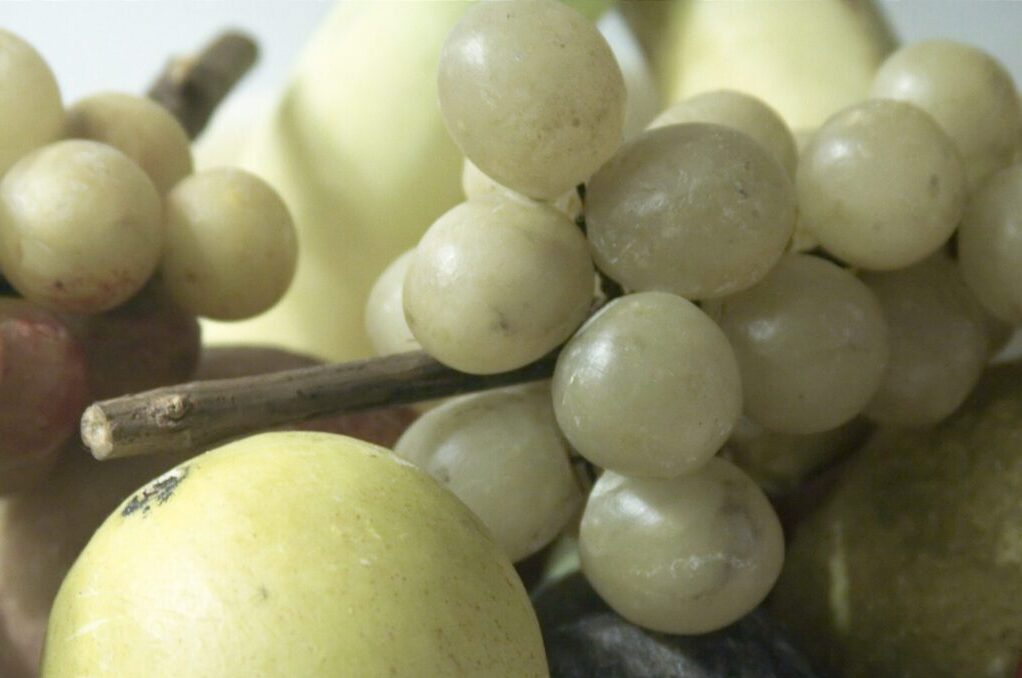When Joyce’s mother disappears, she leaves behind all thirty-three bottles of perfume on the mirrored shelves in her bathroom. Everything from Jior J’adore to Red Door. Joyce’s stepfather George produces this inventory as evidence that Joyce’s mother cannot have intended to leave him.
Joyce wonders if George is calling her from the silver telephone that hangs on her mother’s bathroom wall or from the beige telephone that hangs from his own bathroom wall, which also has bottled scents on mirrored shelves, though not nearly as many bottles as Joyce’s mother owns.
What else Joyce’s mother left behind: the picture cube that features younger versions of Joyce on its six flat faces; forty-two dresses and the forty-two hangers that wear them; the bowl of fake fruit she’s kept on the breakfast table since long before George, since as long as Joyce can remember; and her collection of crystal animals—elephant, peacock, jaguar, and the smallest of the four, a little sleeping dog, which Joyce has long secretly thought of as George.
He says, “Do you think she was kidnapped? Do you think—” He goes quiet.
Joyce remembers all that her mother left behind when she left Joyce and her father. There’d been bottles of perfume and dresses and photos and crystal animals then, too. Why her mother took the bowl of fake fruit, of all things, Joyce never could figure. Just as the little crystal dog has represented George to Joyce, that bowl of fake fruit had come to represent her mother. How precariously all those pieces are crammed on top of that little brown bowl. If the fuzzy pears, oranges, and lemons weren’t glued together, they’d tumble out. And then those bunches of little grapes dangling out on opposite sides of the bowl—elegant like ivy or distressing like innards drooping from a massive gut wound, depending on Joyce’s mood, depending on her mother’s mood.
That her mother has now abandoned even the fake fruit could be a sign of progress, Joyce rationalizes, but as she pictures that fake fruit alone in that tacky gold and emerald green kitchen, no one to wipe the dust off, Joyce feels sad and disoriented, like when long ago she once bit into one of those grapes only to discover that it tasted like the rubber nipple on the pacifier her mother used to shove into her mouth whenever she cried.
–
Michelle Ross is the author of three story collections: There’s So Much They Haven’t Told You, winner of the 2016 Moon City Short Fiction Award; Shapeshifting, winner of the 2020 Stillhouse Press Short Fiction Award (November 2021); and They Kept Running, winner of the 2021 Katherine Anne Porter Prize in Short Fiction (forthcoming in 2022). Her work is included in Flash Fiction America, Best Small Fictions, Best Microfiction, the Wigleaf Top 50, and other anthologies. She is fiction editor of Atticus Review.
Lead image: “Fake Fruit (012/365)” (via Flickr user Rich Renomeron)

